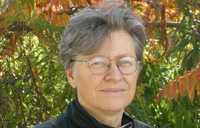
York University professor and veteran filmmaker Nancy Nicol’s latest documentary, No Easy Walk to Freedom, premiered June 1 as part of this year’s Inside Out Toronto LGBT Film Festival. The film tells the story of the struggle to strike down Section 377 of the Indian Penal Code, decriminalizing homosexuality in contemporary India. The screening took place at the TIFF Bell Lightbox in Toronto.
No Easy Walk to Freedom was filmed in Delhi, Mumbai, Bangalore, Lucknow and rural India. Told through the voices of lawyers, activists and community leaders, the film exposes human rights violations and documents the growth of queer organizing in India in the context of this historic battle to overturn a law imposed by British colonialism.
The political context of the struggle has escalated with the recent election. The BJP party, which won a majority, supports continued criminalization under Section 377. In 2009, the law was struck down by the Delhi High Court in a precedent-setting ruling celebrated worldwide. However, in December 2013, the Supreme Court of India set aside the 2009 verdict and upheld 377, re-criminalizing LGBT people in India. Currently, the 377 case is under review by the Indian Supreme Court.
“This fight has significant implications globally,” says Nicol. “Section 377 was the first of such laws developed under British colonial rule in India in 1860 and was spread throughout the British colonies. A version of the same law still exists in half of the countries where homosexuality is illegal today. Movements for lesbian, gay, bisexual and trans (LGBT) human rights and decriminalization are now active in many of these countries and others.”
No Easy Walk to Freedom is one outcome from Envisioning Global LGBT Human Rights, a large international research and documentary project led by Nicol. Envisioning is comprised of 31 partners based in Africa, the Caribbean, India and Canada, working together to share resources, knowledge and research to advance LGBT human rights.


